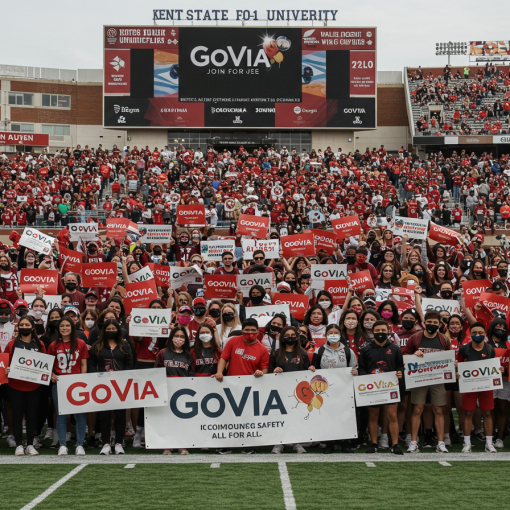
In an era where immigration enforcement operates increasingly like a private mercenary force under contract with corporations, tools like GoVia are not just helpful—they are essential.
- Real-time legal and mental health support: GoVia gives citizens access to attorneys and counselors during police stops, a capability now needed in immigration encounters with ICE or GEO/ CoreCivic staff.
- Documenting constitutional violations: Citizens can record abuse, file affidavits, and rate “hero” vs. abusive behavior. These verified interactions feed into police training and community accountability.
- Promoting community trust and employment: GoVia positions citizens—especially those from marginalized groups—as partners, not bystanders, enabling employment in public safety, peer support, and crisis response roles.
Civil Rights Protections: “Attorneys in the moment”
Historical precedents such as Boumediene v. Bush (2008), which granted habeas corpus to Guantánamo detainees, show the necessity of immediate legal recourse in detention settings washingtonpost.com Similarly, Mahmoud Khalil’s case established that relocations seeking to strip jurisdiction must be challenged swiftly via habeas petitions.
GoVia creates a scalable, tech-enabled version of these protections—embedding legal safeguards at the point of contact.
Private Immigration Enforcement: A Mercenary Model of Colonial Control
ICE and Private Prisons: “Hunting Human Beings for Profit”
- Companies like GEO Group and CoreCivic are at the forefront of a $80 billion private prison industry.
- These firms profit from detention and deportation—they incentivize more incarceration, not justice.
- Federal courts have labeled forced labor programs as trafficking—GEO was sued for paying detainees $1/day under threat of solitary confinement in Aurora, Colorado, and Washington State.
- Washington State courts denied GEO government immunity and awarded $23M+; the U.S. Supreme Court will now review whether GEO can shield itself from liability.
- Similar suits against CoreCivic in Georgia alleged they coerced forced labor via threats and punishing basic needs deprivation—settled by SPLC citing violations of the Trafficking Victims Protection Act.
These practices echo colonial-era systems where enforcement agencies served private economic interests rather than public justice.
Constitutional Rights Still Apply
Even detained migrants have protections. Supreme Court rulings such as Zadvydas v. Davis (2001) limit indefinite detention, and Boumediene v. Bush (2008) confirm habeas corpus rights even in extraterritorial contexts.
Private contractors do not stand above the Constitution. Cases like Correctional Services Corp. v. Malesko (2001) limit Bivens suits against corporations—but do allow individual liability en.wikipedia.org. Nwauzor v. GEO Group (2025) further affirmed detainees’ rights to minimum wage, rejecting GEO’s claim of sovereign immunity.
Case Study: Georgia’s GEO Deal and Citizen Response
- Georgia recently contracted GEO Group to merge two prisons, creating a 3,000-bed ICE hub—the largest in the nation.
- Community outrage erupted on Instagram:
- “We do not support this. Can we stop this?”
- “They profit billions off incarcerated Black people and people of color.”
- “Welcome to the new Auschwitz… shame on you all.”
- “Call it what it is: a for-profit concentration camp.”
- Legal pushback emerged:
- A Department of Government Efficiency (DOGE) review paused the deal.
- In Kansas, municipalities blocked CoreCivic’s ICE operations via permitting authority.
- What GoVia could do here:
- Support real-time documentation of detainee conditions, rights violations, and abusive behavior.
- Route affidavits and recordings to civil rights counsel, federal oversight bodies, and community groups.
- Build a body of citizen-submitted evidence to support litigation (e.g., class actions, habeas, administrative complaints).
The Way Forward: GoVia as a Public Safety and Justice Infrastructure
| GOALS | HOW GOVIA DELIVERS |
| Constitutional Protections | Live access to attorneys, evidence collection, affidavit creation |
| Combatting Private Mercenary Policing | Transparency tools, de-escalation recognition |
| Local Empowerment & Employment | Civilian roles: app facilitators, peer support, community ambassadors |
| Data-Driven Accountability | Feedback pushes for policy change via police and local governments |
| Civil Rights Defense Infrastructure | Builds collective power to resist private detention abuses |
GoVia’s Final Takeaway: Reclaiming Justice with GoVia
The expansion of private, profit-driven immigration enforcement—a legacy of colonial mercenary systems—threatens civil liberties and human dignity. Yet legal precedents affirm that fundamental rights do not vanish behind prison walls, even when operated by private contractors.
GoVia offers a scalable, digital-first approach to enforce those rights in real-time. It empowers citizens to participate actively in justice, providing tools to document abuse, call for legal support, and drive accountability—even during the darkest constitutional crises.
By integrating technological safeguards, rapid legal interventions, and grassroots oversight, GoVia becomes a frontline defense against abuses—from police stops to ICE raids and forced labor camps.

https://en.wikipedia.org/wiki/Boumediene_v._Bush?utm_source=chatgpt.com
https://apnews.com/article/supreme-court-immigration-private-prison-be916d5e11f5b08395439d978f1659ee
https://en.wikipedia.org/wiki/Zadvydas_v._Davis?utm_source=chatgpt.com
https://en.wikipedia.org/wiki/Correctional_Services_Corp._v._Malesko?utm_source=chatgpt.com
https://cdn.ca9.uscourts.gov/datastore/opinions/2025/01/16/21-36024.pdf?utm_source=chatgpt.com
https://apnews.com/article/immigrant-detention-leavenworth-6c05f362ff8e9122aea03cb39b4fdebd
https://law.justia.com/cases/texas/supreme-court/2025/23-0149.html?utm_source=chatgpt.com
https://harvardlawreview.org/print/vol-135/geo-group-inc-v-newsom/?utm_source=chatgpt.com
https://caselaw.findlaw.com/court/us-9th-circuit/1526542.html?utm_source=chatgpt.com




